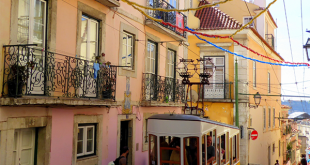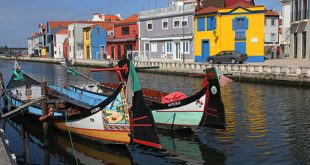Once you have done your application into a polytechnic or a university in Portugal, the next step after you get accepted is to get a student visa. Like any related paperwork when you’re getting ready to study abroad, you should dive in it as soon as possible. When it comes to student visa in Portugal, the earlier you apply, the sooner you’ll get one.
Learn the procedure & requirements of a study visa in Portugal and you spare yourself from the stress due to the risk of missing out the beginning of your courses. To help you buy more time and skip the long research part, we’ve compiled some crucial info on how to get a student visa to Portugal. Read further to make sure you’re well-prepared and get accepted.
Who needs a student visa to Portugal?
Separate rules apply depending on the student’s country of origin, and the duration of their stay in Portugal. However, these rules are the same that apply in several EU countries. If you’re a EU/EEA citizen or come from Andorra, Iceland, Lichtenstein, Norway and Switzerland, then you don’t need a student visa to Portugal.
Moreover, students from these countries, if they plan to stay more than 90 days in Portugal, must request a certificate of registration from their local municipal hall. They should do that within 3 months of their arrival in Portugal.
On the other hand, students from non-EU/EEA countries need a student visa along with a residence permit, in case they stay more than 3 months in Portugal. Moreover, students from the 61 countries listed here, are exempt from holding a visa if they stay in Portugal for less than 3 months.
Types of student visa
The type of student visa you should apply for depends on the duration of your study program as well as your nationality. As already mentioned, EU/EEA and Swiss students don’t need a visa. The same goes for students from US, Canada, and Australia if they stay in Portugal for up to 3 months.
Non-EU international students have the choice between 3 types of visas to Portugal: a short-term visa (Type C), a long-term visa (Type D) and a temporary stay visa.
- Short-term student visa: is for non-EU students who plan to pursue a study or research program of less than 90 days in Portugal.
- Temporary stay visa: is for those who undertake any courses that last between 3 months and 1 year. They can trade this entry visa to a temporary residence permit once in Portugal.
- Long-term study visa: is for those who are in Portugal to study or to conduct research for a duration of more than 90 days. Moreover, those who apply for this visa will need to get a residence card upon their arrival in the country.
Requirements: Portugal student visa checklist
The application process as well as the documents to provide are the same for all 3 types of visas. You can apply at a visa application center, use the online e-visa service or to go through the usual way, via the Portuguese embassy of your home country.
The documents to provide may vary a little depending on the embassy of your home country. But the main and most common documents include:
- Completed application form
- Letter of acceptance from your university
- Passport which is valid for at least 3 months more than the visa
- Passport-size photos
- Certificate of a clean criminal record
- Proof of financial funds to cover your living costs in Portugal for the duration of your stay. It can be a bank statement or a proof of scholarship
- Confirmed accommodation arrangements, which can be a rental contract or a letter of invitation from a Portuguese family, in case you opt for a homestay. It also can be a confirmation from your university if you plan to stay in campus accommodation.
- Proof of an international insurance
- Proof of payment of the application fee
- Details of a return plan ticket from Portugal for when you’ll leave
The student visa to Portugal usually does not have any language requirements, as it is already requested as part of the university application. The university admission then attests to your proficiency in your program’s language of instruction.
Read here on how university application and admission works in Portugal.
Student resident permit in Portugal
Within 3 months of their arrival in Portugal, non-European international students who plan a long stay in the country need a residence authorization. They can apply for it at the Foreigners and Borders Service (SEF) office of their city.
For this procedure, the documents to provide are similar to those necessary for the visa. You should then make an appointment through the SEF online services then prepare the following paperwork:
- Valid passport with one photocopy
- 2 passport-size and recent photos
- Proof of financial means to cover your stay in the country
- Confirmation of accommodation
- Medical insurance
- Acceptation letter from your university along with the proof that you have paid any necessary tuition fee
Moreover, along with the residence card application, there are other things to take care of when you arrive in Portugal. This includes:
- Opening a bank account
- Registering for Portuguese healthcare
- Setting up utilities and telecommunication if you rent a private accommodation
- Getting a Portuguese SIM card
- Getting a tax identification number (NIF) from the Portuguese tax authorities, that will serve you for any official or legal activities in the country.
How much does a Portugal student visa cost?
Visa costs in Portugal vary depending on the type of visa. For a short stay, the visa will cost around €80. Nationals from Armenia, Azerbaijan and Russia pay €35 instead. Validity for this type of visa is 90 days, or a maximum of 90 days within a duration of 180 days. Moreover, you cannot extend this visa.
When it comes to temporary stay visas, which is for those who stay in Portugal within a period of 3 to 12 months, the entry visa will cost you €75. Moreover, a temporary resident permit that comes with this visa will cost you around €90. This visa is also non-renewable.
Lastly, a long-stay student visa to Portugal costs €90. Moreover, you need to pay a fee of €108 for your residence permit application at the SEF office. The validity of this visa is for the 12 months, and you can renew it for the duration of your program, to a maximum of 5 years.
Portugal student visa with spouse
Family members can submit a group visa or permit application with the student coming to study in Portugal. They can also apply for a separate family reunion visa. The family members who are allowed to join include:
- Spouse and partner
- Children under 18
- Children over 18 who are dependent to the student
In this case, the spouse and children need to pay different fees and provide their own documents. And their visa and permit have the same validity time as the student visa and residence permit. Lastly, any rights given to the student, such as the right to work, also apply to their family members.
Can I work in Portugal with a student visa?
Students who are citizens of EU/EEA/Switzerland can work while they study in Portugal, without any restrictions and hours limits. Non-EU/EEA students who have a residence permit on the other hand can only work part-time up to 20 hours per week. They, however, can work full-time during semester breaks and holidays.
Moreover, students with a short-term visa or who stay less than 90 days in the country cannot partake in any employment. Furthermore, before starting any professional activity, holders of a student visa need to inform the SEF beforehand.
Those who have a scholarship must abide to some conditions if they want to work in Portugal. So, make sure to check with the organization that grants your scholarship in Portugal.
Lastly, any student working in Portugal might have to pay taxes and social security. But this depends on the salary they earn.




 Aljawaz Your guide to study abroad
Aljawaz Your guide to study abroad








